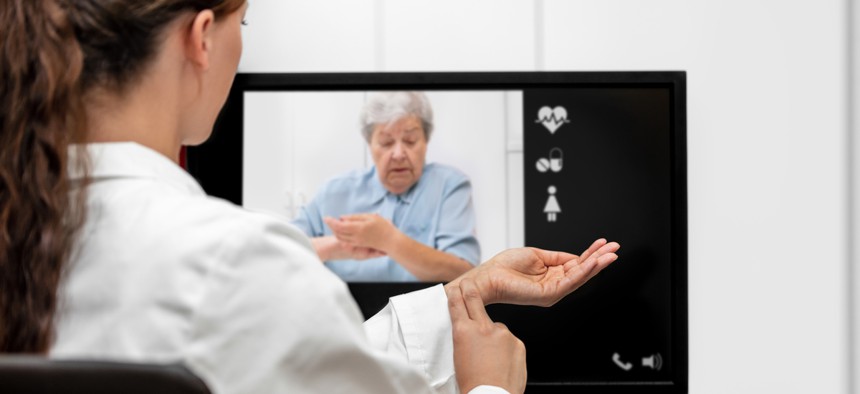Bipartisan Cadre of Lawmakers Call for Permanent Telehealth Expansion

Miriam Doerr Martin Frommherz/Shutterstock.com
Telehealth has proved vital during the COVID-19 pandemic, and more than four dozen lawmakers want to see maximized moving forward.
A bipartisan, bicameral collection of 49 lawmakers urged House and Senate leaders Friday to include a permanent expansion of access to telehealth services in potential end-of-year legislation.
In a letter authored by Sen. Brian Schatz, D-Hawaii, lawmakers argue that telehealth has proven to be a critical service during the COVID-19 pandemic, ensuring patients continue to receive care while minimizing the spread of the virus, freeing capacity in health care facilities and reducing the use of scarce personal protective equipment.
Driven in part by relaxed restrictions on telehealth included in the Coronavirus Preparedness and Response Supplemental Appropriations Act, 2020 and the Coronavirus Aid, Relief, and Economic Security Act, telehealth use has increased 13,000% among Medicare beneficiaries during the COVID-19 pandemic. However, those relaxed restrictions will expire following the pandemic unless Congress acts.
“As we near the end of the year and the 116th Congress, we urge you to include provisions in end of the year legislation to make permanent expanded coverage of Medicare telehealth services. Specifically, immediate action to permanently waive geographic restrictions for originating sites, authorize health centers in rural and underserved areas to provide telehealth, and allow beneficiaries to use telehealth in their homes would be key steps to ensure much-needed certainty about Medicare telehealth coverage for health care providers and to improve access to care for patients,” the letter states.
The lawmakers added rural and underserved areas will be disproportionately impacted should telehealth restrictions return to normal. The authority for expanded coverage of Medicare telehealth services is tied to the COVID-19 public health emergency declaration, which is renewed in three-month increments.
“Ramping up telehealth requires significant costs—including the purchase of equipment such as tablets and webcams, telehealth platforms, additional staff, provider training, and changes to electronic health records, billing, and patient engagement processes. Without more certainty about the future of Medicare coverage, many organizations are not investing in all of these areas to optimize the use and availability of telehealth,” the letter states. “Therefore, Congress needs to act now to better serve patients and health care providers during the pandemic, and to ensure that telehealth remains an option after the pandemic is over.”






